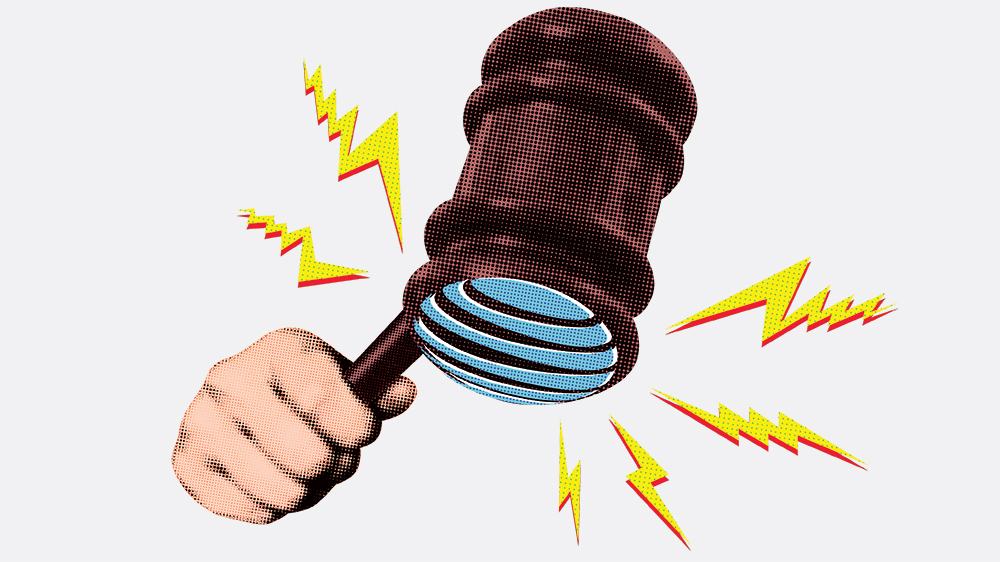AT&T-Time Warner Analysis: Judge Puts Legal Framework on Forces of Disruption in Media
By Cynthia Littleton
LOS ANGELES (Variety.com) – The 172-page opinion in the -Time Warner anti-trust case makes it clear that U.S. District Court Judge Richard Leon did his homework to understand the seismic shifts that have rocked the pay TV marketplace during the past decade.
The trial in D.C. federal court wasn’t just about whether the union of AT&T and would be bad for consumers. The proceedings wound up putting a legal framework for examining how traditional media giants are responding to the forces of disruption: the rise of SVOD giants, the Peak TV phenomenon and the steady drumbeat of cord cutting and its impact on the bottom line of TV programmers and distributors alike.
“It is inescapable that SVODs have played a large role in causing the demand for and continued purchase or traditional MVPD subscriptions to “declin[e] at a rapid pace,” Leon wrote, citing a quote from AT&T chairman-CEO Randall Stephenson. “To ignore those industry trends — trends that are transforming how consumers view video content and blurring the lines between programming, distribution, and web-based competitors — would be to ignore the Supreme Court’s direction to examine this case with an eye toward the ‘structure, history, and probable future’ of this fast-changing industry. I, of course, cannot do that!”
Leon’s opinion repeatedly cites the challenges facing traditional media conglomerates amid the rise of Netflix, Amazon, Facebook, and other hugely capitalized digital behemoths. The judge offers lengthy discourse on how the digital heavyweights are advantaged by the Big Data they cull from the viewing activity on their platforms. He also discusses the unique structure of the SVOD giants in serving as both a distributor with direct customer relationships and a programming service offering exclusive original series. Even in a vertically integrated media conglomerate such as Comcast, the cable service and programming operations are usually separated by distinct divisions. Netflix, on the other hand, is an all-in-one service that has direct relationships with subscribers but at a much lower cost than traditional MVPD service.
Leon notes the hyper-competitive impact of Netflix barreling into the programming arena with as much as $8 billion to spend on original and acquired content, which as he cites in the opinion “is more than twice the size of HBO’s” programming budget. He also points to the shift in consumer behavior toward preferring ad-free platforms.
“After all, as Nobel Laureate Bob Dylan correctly observed: You don’t need a weatherman to know which way the wind blows,” Leon wrote, quoting a lyric from Dylan’s 1965 anthem “Subterranean Homesick Blues.” Moreover, he rejects the government’s rationale that the market power of a combined AT&T-Time Warner needed to be considered outside of the context of the larger pay-TV market, echoing the assertions of CEOs and moguls for more than a decade. Leon’s legal reasoning will undoubtedly be cited by companies in future regulatory proceedings at the FCC and Justice Department.
“Although the government is of course correct that the refrain ‘we are getting killed in by new competition in different markets’ is no ‘defense to an illegal merger,’ I simply cannot evaluate the government’s theories and predictions of harm, as presented by the Government at trial, without factoring in the dramatic changes that are transforming how consumers view video content.”
The judge’s opinion was so strongly in favor of AT&T that he went so far as to endorse the telco giant’s projection of realizing $1.5 billion in cost savings by 2021 from the consolidation of overlapping administrative departments. “I have a high degree of confidence that the defendants will generate most, if not all, of the predicted $1.5 billion in annual cost savings,” he wrote.
Leon’s opinion took an exhaustive look at the facts and theories traded in the AT&T case no doubt because he is aware of its impact on future media M&A activity at this tumultuous time of disruption and reinvention. He notes that the trial generated some 3,000 pages of documents, and that the transcript of the court proceedings over the six-week trial runs some 4,300-pages.
He concluded his opus opinion with a warning that the government should not take any more steps to block the completion of AT&T and Time Warner deal, now scheduled for June 20. For the government to seek a stay of his order pending their appeal would do far more harm than good, even for those in the Justice Department who strongly believe that the deal is bad for competition.
“To use a stay to accomplish indirectly what could not be done directly — especially when it would cause certain irreparable harm to the defendants — simply would be unjust. I hope and trust that the government will have the good judgment, wisdom, and courage to avoid such a manifest injustice,” Leon wrote. “To do otherwise, I fear, would undermine the faith in our system of justice of not only the defendants, but their millions of shareholders and the business community at large.”
Read the full ruling below:
AT&T Decision by gmaddaus on Scribd

